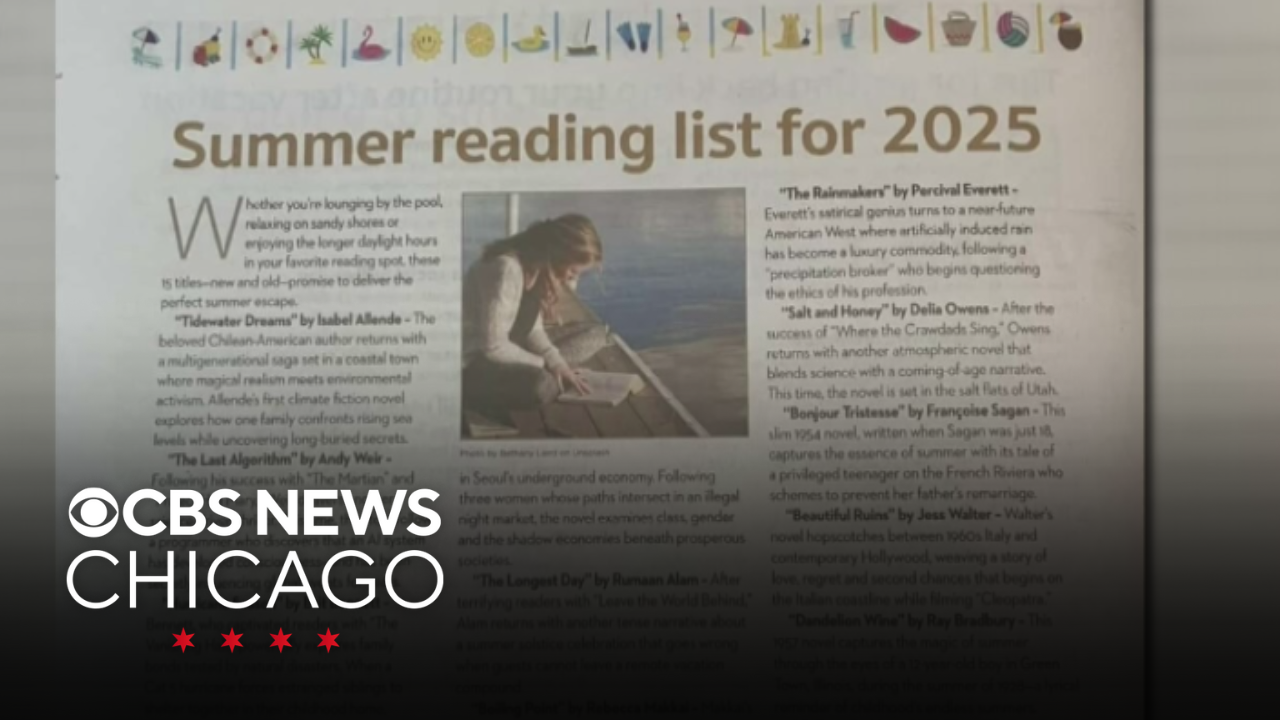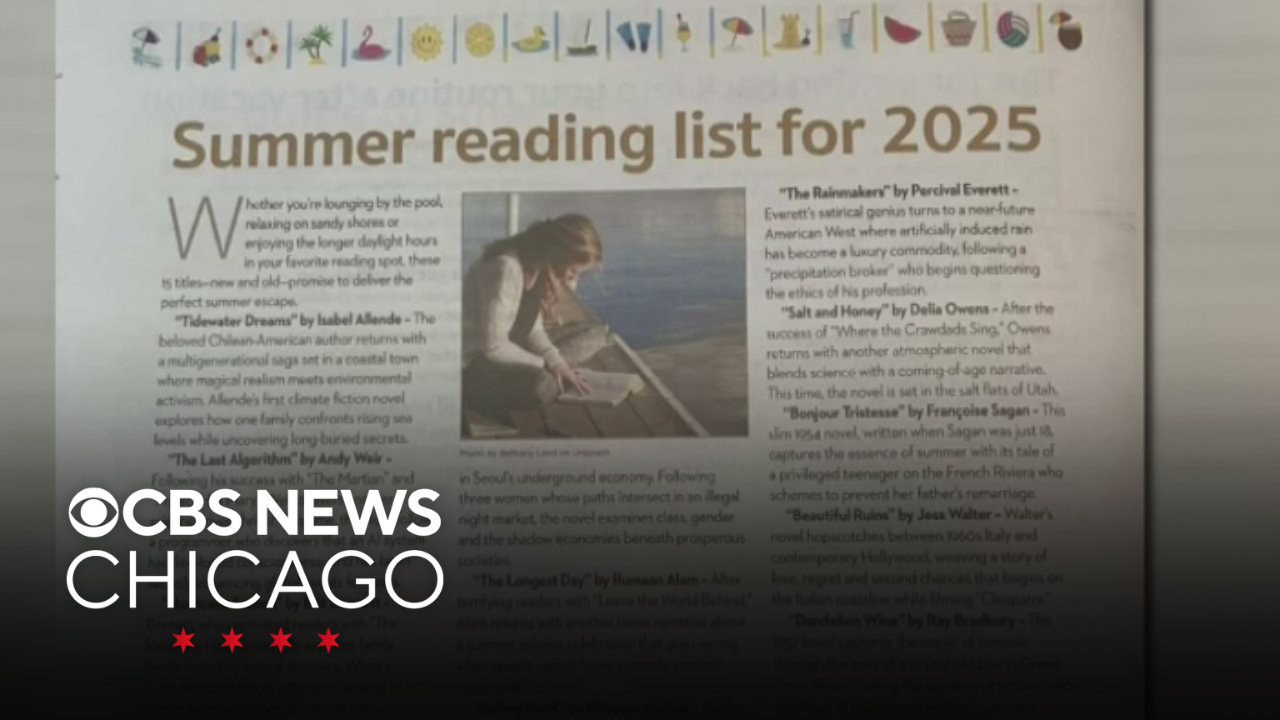Chicago Sun-Times Apologizes for AI-Generated Summer Reading List Fiasco
The Chicago Sun-Times apologized on Tuesday for publishing a summer reading list in its Sunday edition that included 10 non-existent books generated by artificial intelligence (AI). The list of 15 book titles, authors, and descriptions was supposed to be a special feature for readers. However, it was discovered that the majority of the books were fictional.
The first book on the list, “Tidewater Dreams” by Isabel Allende, does not exist. Allende is a real author known for her novels like “The House of the Spirits” and “The Wind Knows My Name.” Another fake title was “Boiling Point” by Chicago author Rebecca Makkai, who actually wrote “The Great Believers” and “I Have Some Questions for You.”
Other fictional titles included “The Last Algorithm” by Andy Weir, “Hurricane Season” by Brit Bennett, and “Nightshade Market” by Min Jin Lee. The authors associated with these fake titles are real, with some taking to social media to deny writing the books. Min Jin Lee tweeted, “I have not written and will not be writing a novel called ‘Nightshade Market.’ Thank you.”
The last five books on the list were real titles: “Bonjour Tristesse” by Françoise Sagan, “Beautiful Ruins” by Jess Walter, “Dandelion Wine” by Ray Bradbury, “Call Me By Your Name” by André Aciman, and “Atonement” by Ian McEwan. However, these were not new releases, contradicting the expectation of a summer reading list featuring recent publications.

The Sun-Times special section was licensed from a national content partner that used a freelance writer. The section was not approved by the paper’s newsroom. According to Melissa Bell, CEO of Chicago Public Media, the parent organization of Sun-Times, “Our partner confirmed that a freelancer used an AI agent to write the article. This should be a learning moment for all of journalism that our work is valued because of the relationship our very real, human reporters and editors have with our audiences.”
The incident prompted the Sun-Times to update its policies to prevent similar occurrences in the future. The newspaper also announced that subscribers would not be charged for the premium edition in which the list appeared.
The Chicago Sun-Times Guild, the newsroom’s union, released a statement expressing pride in their journalism and disturbance over the AI-generated content being printed alongside their work. “We take great pride in the union-produced journalism that goes into the respected pages of our newspaper and on our website. We’re deeply disturbed that AI-generated content was printed alongside our work.”
This incident highlights the challenges and risks associated with using AI in content creation and the importance of maintaining journalistic integrity.


